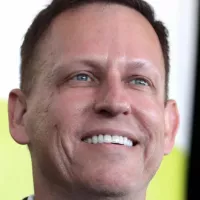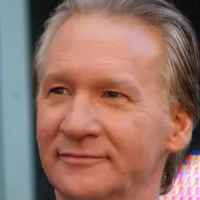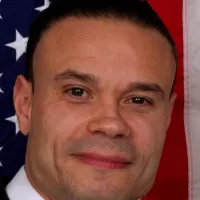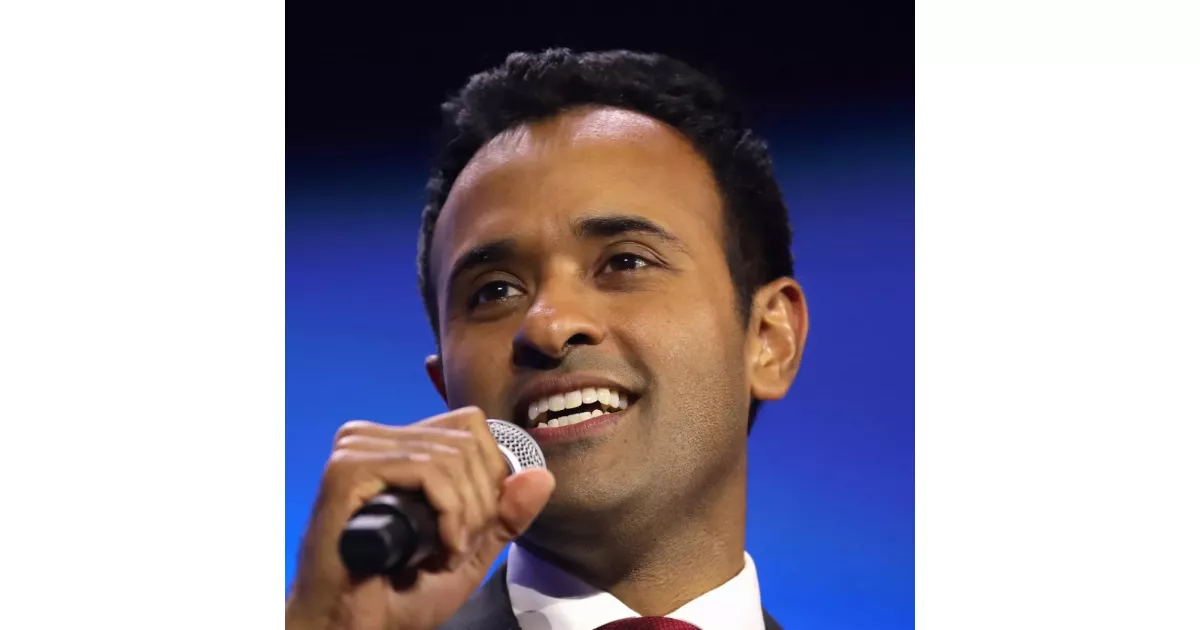Vivek Ganapathy Ramaswamy is an American entrepreneur and politician known for founding Roivant Sciences, a biotech pharma company, in 2014. He entered the political arena as a candidate in the 2024 Republican presidential primaries, but later withdrew and endorsed Donald Trump. Subsequently, he launched a campaign for the 2026 Ohio gubernatorial election, securing endorsements from both Trump and the Ohio Republican Party. Ramaswamy's background spans both the business world and Republican politics.
August 9, 1985: Birth of Vivek Ramaswamy
On August 9, 1985, Vivek Ganapathy Ramaswamy was born. He is an American entrepreneur and politician.
2003: Graduated as Valedictorian
In 2003, Ramaswamy graduated as valedictorian from St. Xavier High School.
2004: Voted for Michael Badnarik
In 2004, Ramaswamy voted for Michael Badnarik, the Libertarian Party presidential nominee.
2007: Worked at QVT Financial
From 2007, Ramaswamy worked at the hedge fund QVT Financial.
2007: Co-founded Campus Venture Network
In 2007, Ramaswamy and Travis May co-founded Campus Venture Network, which published a private social networking website for university students.
2007: Graduation from Harvard University
In 2007, Ramaswamy graduated from Harvard University with a Bachelor of Arts degree (summa cum laude) in biology and was a member of Phi Beta Kappa. He also gained a reputation as a brash and confident libertarian and was the president of the Harvard Political Union. He wrote his senior thesis on the ethical questions raised by creating human-animal chimeras, earning him a Bowdoin Prize.
2008: Did not vote in presidential election
Ramaswamy did not vote in the 2008 presidential election.
2009: Campus Venture Network Sold
In 2009, Campus Venture Network, co-founded by Ramaswamy, was sold to the nonprofit Ewing Marion Kauffman Foundation.
2011: Awarded Soros Fellowship
In 2011, Ramaswamy was awarded a postgraduate fellowship to attend law school by the Paul & Daisy Soros Fellowships for New Americans.
2012: Did not vote in presidential election
Ramaswamy did not vote in the 2012 presidential election.
2013: Received Juris Doctor Degree
In 2013, Ramaswamy received a Juris Doctor degree from Yale University.
2013: Earned Law Degree from Yale University
In 2013, Vivek Ramaswamy earned a law degree from Yale University.
December 2014: Axovant Purchased Intepirdine Patent
In December 2014, Axovant, a Roivant subsidiary, purchased the patent for intepirdine from GlaxoSmithKline for $5 million.
2014: Founded Roivant Sciences
In 2014, Ramaswamy founded the biotechnology firm Roivant Sciences, incorporating it in Bermuda and receiving almost $100 million in start-up capital.
2014: Left QVT Financial
In 2014, Ramaswamy left QVT Financial where he was a partner and co-managed the firm's biotech portfolio.
March 2015: Chairman of Tekmira Pharmaceuticals
In March 2015, Ramaswamy maintained his position as chairman at Tekmira Pharmaceuticals after merging with OnCore Biopharma.
2015: Raised Millions for Roivant Subsidiary
In 2015, Ramaswamy raised $360 million for Roivant subsidiary Axovant Sciences in an attempt to market intepirdine as a drug for Alzheimer's disease. Ramaswamy appeared on the cover of Forbes and took a massive payout after selling a portion of his shares in Roivant to Viking Global Investors.
2015: Marriage to Apoorva Tewari
Vivek Ramaswamy married Apoorva Tewari in 2015. They met at Yale, when he was studying law and she was studying medicine.
2016: Donated to Dena Grayson's Campaign
In 2016, Ramaswamy donated $2,700 to the campaign of Dena Grayson, a Florida Democrat running for Congress.
2016: Did not vote in presidential election
Ramaswamy did not vote in the 2016 presidential election.
September 2017: Intepirdine Failed Clinical Trial
In September 2017, Axovant Sciences announced that intepirdine had failed in its large clinical trial, causing the company's value to plunge.
2017: Roivant Partnered with CITIC and SoftBank
In 2017, Roivant partnered with CITIC Private Equity of the Chinese state-owned CITIC Group to form Sinovant. In 2017, Ramaswamy also struck a deal with Masayoshi Son in which SoftBank invested $1.1 billion in Roivant.
2017: Tax Cuts
Vivek Ramaswamy took no public position on the 2017 Trump tax cuts.
2018: Ramaswamy's Statement on Intepirdine
In 2018, Ramaswamy said he had no regrets about how Axovant handled the drug intepirdine, but later expressed regret over the outcome due to criticism.
2018: Created the Roivant Foundation
In 2018, an earlier iteration of Roivant Social Ventures (RSV), the Roivant Foundation, was created.
2019: Roivant Sold Stake in Subsidiaries
In 2019, Roivant sold its stake in five subsidiaries, including Enzyvant, to Sumitomo Dainippon Pharma; Ramaswamy made $175 million in capital gains from the sale.
2020: Voter Proposal
During his campaign, Vivek Ramaswamy proposed raising the standard voting age from 18 to 25 and ending birthright citizenship. Ramaswamy would allow citizens between 18 and 24 to vote only if they are enlisted in the military, work as first responders, or pass the civics test required for naturalization.
2020: Election Conspiracy Theories
During his presidential campaign, Vivek Ramaswamy asserted that "big tech" played a role in stealing the 2020 election, referring to the Hunter Biden laptop story being suppressed by the mainstream media and social networks. He also claimed that the "Great Replacement" conspiracy theory was "the Democratic Party's platform" to benefit from demographic shifts.
2020: Donated to the Ohio Republican Party
From 2020, Ramaswamy donated $30,000 to the Ohio Republican Party.
2020: Co-founded Chapter Medicare
In 2020, Ramaswamy co-founded Chapter Medicare, a Medicare navigation platform.
2020: Supported Donald Trump
In 2020, Ramaswamy supported Donald Trump for the 2020 presidential election, marking a shift from being largely apolitical.
2020: Established Roivant Social Ventures
In 2020, Roivant Sciences, under Ramaswamy's leadership as CEO, established a nonprofit social-impact arm, Roivant Social Ventures (RSV).
2020: Vegetarian Beliefs
In 2020, Vivek Ramaswamy wrote, "I believe it is wrong to kill sentient animals for culinary pleasure."
January 6, 2021: Attack on the Capitol
In the days after the January 6, 2021, attack on the Capitol, Vivek Ramaswamy condemned the attack, but argued that social media bans on Trump violate the First Amendment. Later, while running for president, Ramaswamy repeatedly claimed that the January 6 attack "was an inside job".
January 2021: Ramaswamy Stepped Down as CEO
In January 2021, Ramaswamy stepped down as CEO of Roivant Sciences and assumed the role of executive chairman.
August 2021: Publication of 'Woke, Inc.'
In August 2021, Vivek Ramaswamy's book, the New York Times bestseller, "Woke Inc" was published, describing his view of the modern woke-industrial complex.
November 2021: Registered to Vote as Unaffiliated
In November 2021, Ramaswamy registered to vote in Franklin County, Ohio, as "unaffiliated", but described himself as a Republican.
2021: Published 'Woke Inc.'
In 2021, Ramaswamy wrote his first book, "Woke, Inc.", and appeared on cable networks arguing against leftist "woke" policies and became an active donor to the Republican Party.
2021: Stepped down as CEO of Roivant Sciences
In 2021, Vivek Ramaswamy stepped down as CEO of Roivant Sciences.
September 2022: Published 'Nation of Victims'
In September 2022, Ramaswamy published a second book, "Nation of Victims: Identity Politics, the Death of Merit, and the Path Back to Excellence", a few months before announcing his presidential candidacy.
October 2022: Meetings with South Carolina Lawmakers
In October 2022, Ramaswamy held closed-door meetings with South Carolina lawmakers, pitching Strive to manage South Carolina pension funds.
2022: Considered Running for U.S. Senate
In 2022, Ramaswamy briefly considered running in the U.S. Senate election in Ohio.
2022: Launched Strive's Flagship Fund
In 2022, Strive's flagship fund, the exchange-traded fund DRLL, launched as an "anti-woke" energy sector index fund.
2022: Co-founded Strive Asset Management
In 2022, Vivek Ramaswamy co-founded an investment firm, Strive Asset Management.
2022: Chevron and Oil Production
In 2022, Vivek Ramaswamy urged Chevron to increase oil production and criticized its support for a carbon tax. Ramaswamy's company holds a 0.02% stake in Chevron.
February 2023: Resigned as Executive Chairman
In February 2023, Ramaswamy resigned as Strive's executive chairman to focus on his presidential campaign.
February 2023: Ramaswamy Resigned as Chair of Roivant
In February 2023, Ramaswamy stepped down as chair of Roivant to focus on his presidential campaign.
February 21, 2023: Presidential Candidacy Announcement
On February 21, 2023, Vivek Ramaswamy announced his candidacy for the Republican nomination for president of the United States in 2024 on Tucker Carlson Tonight. He also released 20 years of his income tax returns and challenged his rivals to do the same.
May 2023: Wikipedia Biography Edits
In May 2023, Vivek Ramaswamy's campaign admitted to paying an editor to alter his Wikipedia biography before announcing his candidacy. The edits removed references to his postgraduate fellowship and involvement with the Ohio COVID-19 Response Team. The campaign denied any political motivation and claimed the edits were to correct factual distortions.
June 2023: Criticism of Meetings with Lawmakers
In June 2023, after The Post and Courier reported on Ramaswamy's October 2022 meetings with South Carolina lawmakers, the sessions were criticized as a form of unregistered lobbying.
November 2023: Condemnation of Azerbaijan's Military Operation
In November 2023, Vivek Ramaswamy condemned Azerbaijan's military operation against the Armenian population of Nagorno-Karabakh and said that the U.S. should block all its military aid to Azerbaijan.
2023: Donated to the Ohio Republican Party
From 2020 to 2023, Ramaswamy donated $30,000 to the Ohio Republican Party.
2023: Axovant Dissolved
In 2023, Axovant, which had attempted to reinvent itself as a gene therapy company, dissolved.
2023: Net Worth Before Law School
In 2023, Ramaswamy stated in an interview that he had a net worth of around $15 million before graduating from law school due to his activities in the finance, pharmaceutical, and biotech industries.
2023: Anti-Woke Candidate
In 2023, The New York Times described Vivek Ramaswamy as an anti-woke candidate. He gained recognition by opposing corporate E.S.G. programs that advance political, social and environmental causes in businesses. During his presidential campaign, he asserted that faith, patriotism, and hard work are being replaced by new secular religions.
2023: Net Worth and Real Estate
In 2023, Vivek Ramaswamy's campaign mentioned his net worth to be around $1 billion. In 2023, the only real estate he reported owning was a house in Columbus, Ohio, in Franklin County.
2023: Support for Trump after Indictment
In 2023, after Donald Trump was indicted on federal criminal charges, Vivek Ramaswamy immediately rallied behind him. He promised to pardon Trump if elected president, along with Julian Assange, Ross Ulbricht, and Edward Snowden.
2023: Ramaswamy Discussed Martin Shkreli
In 2023, in a speech and in his book Woke Inc., Ramaswamy called Martin Shkreli "brilliant" and a pathological liar and criticized the U.S. Department of Justice for prosecuting Shkreli.
May 2024: Acquired Stake in BuzzFeed
In May 2024, Ramaswamy acquired a 7.7% stake in BuzzFeed, later increased to 8.4%, making him the second-largest Class A shareholder in the company.
2024: Appointment to Department of Government Efficiency
A week after the 2024 election, President-elect Donald Trump announced that Vivek Ramaswamy and Elon Musk had been tasked to lead the newly proposed Department of Government Efficiency (DOGE). However, Ramaswamy never worked with the DOGE team during the Trump administration.
2024: Presidential Candidate
In 2024, Ramaswamy entered national politics as the youngest presidential candidate in the Republican primaries but withdrew his bid and endorsed Donald Trump for the 2024 presidential election.
2024: Campaign Endorsement of Trump
In January 2024, after finishing fourth in the Iowa caucuses, Vivek Ramaswamy ended his campaign and endorsed Donald Trump. For the remainder of the 2024 U.S. presidential election, Ramaswamy served the Trump campaign as a political surrogate, representing the Trump campaign and attending campaign events in place of the candidate.
February 15, 2025: Filing for Ohio Gubernatorial Election
On February 15, 2025, Vivek Ramaswamy filed to enter the 2026 Ohio gubernatorial election.
May 9, 2025: Endorsement from Ohio Republican Party
On May 9, 2025, Vivek Ramaswamy received the official endorsement of the Ohio Republican Party's State Central Committee for his Ohio gubernatorial campaign, marking the earliest the state Republican Party has ever endorsed a non-incumbent gubernatorial candidate.
July 2025: Expecting Third Child
In July 2025, Vivek Ramaswamy announced that he and his wife, Apoorva Tewari Ramaswamy, are expecting their third child.
November 2025: Estimated Net Worth by Forbes
In November 2025, Forbes estimated Ramaswamy's net worth to be $1.5 billion, derived from biotech and financial businesses.
2025: Campaign for Ohio Gubernatorial Election
In 2025, Vivek Ramaswamy launched his campaign for the 2026 Ohio gubernatorial election and received endorsements from both President Trump and the Ohio Republican Party.
2026: Ohio Gubernatorial Election
In 2026, Vivek Ramaswamy plans to run for the Ohio gubernatorial election, having launched his campaign in 2025.
2026: Withdrawal from DOGE and Gubernatorial Campaign
On Inauguration Day in 2024, Vivek Ramaswamy withdrew from the Department of Government Efficiency (DOGE) to focus on a potential 2026 Ohio gubernatorial campaign. The departure was reportedly due to friction between Ramaswamy and other DOGE leadership and staff.
2026: Ohio Gubernatorial Election Announcement
Vivek Ramaswamy officially announced his run for the 2026 Ohio governorship on February 24. On the same day, he got an endorsement from President Donald Trump.
2028: Semiconductor Independence
Vivek Ramaswamy said the U.S. should not militarily defend Taiwan from Chinese attack after the U.S. has achieved semiconductor independence by 2028.
Mentioned in this timeline

Candace Owens is an American conservative and far-right political commentator...

Donald John Trump is an American politician media personality and...

Tucker Carlson is an American right-wing political activist and commentator...

Peter Thiel is a German-American entrepreneur venture capitalist and political...
Azerbaijan is a transcontinental and landlocked country located in the...

Bill Maher is an American comedian television host actor and...
Trending

13 minutes ago Prediction Market Revenue Potential and Ethical Concerns Highlighted in Recent Reports.

13 minutes ago Earthquake Shakes Southeast Nebraska and Kansas Border; Community Reacts to Seismic Activity

2 hours ago Dan Bongino Unleashes R-Rated Rant Against Trump Voter's Complaint: Heated Exchange Erupts.

2 hours ago UAE Supports Stranded Tourists with Hotels and Meals After Iran Flight Disruptions

2 hours ago Luka Don?i? shines as Lakers defeat Warriors; LeBron hits 1,000 3-pointers.

3 hours ago Luke Kennard Impresses with Lakers, Drawing Praise and Justifying Trade.
Popular

Jesse Jackson is an American civil rights activist politician and...

Hillary Diane Rodham Clinton is a prominent American politician lawyer...

XXXTentacion born Jahseh Dwayne Ricardo Onfroy was a controversial yet...

Jim Carrey is a Canadian-American actor and comedian celebrated for...

Kashyap Pramod Patel is an American lawyer who became the...

Michael Joseph Jackson the King of Pop was a highly...

